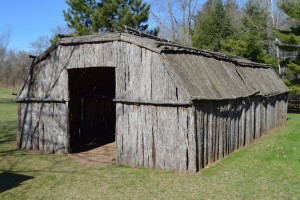Indigenous Doula Services Aims to Support Oneida Families Holistically
In an effort to expand access to culturally sensitive care, Oneida Comprehensive Health Division has launched the Indigenous Doula Services program, a new initiative aimed at providing non-medical support to Native American mothers during pregnancy, childbirth and the postpartum period. The goal is to revive and cherish the time-honored traditions and values of birthing families, helping them along the sacred journey of prenatal care.
The new service has received funding through the Maternal Health Innovation Grant, a vital resource designed to support the development of maternal health services throughout the state of Wisconsin. Through this grant, Oneida Comprehensive Health Division has expanded doula services, ensuring that more mothers have access to these necessary resources. Four newly contracted and trained doulas will join the current four, bringing the total to eight doulas available to provide care. This program plays a crucial role in supporting families throughout the Oneida community.
The doulas are provided with trauma-informed training, including an emphasis on understanding the specific needs of Indigenous families. The doulas involved in this initiative are all Native women, adding a layer of cultural understanding and empathy to the care they provide. This enables them to offer truly holistic care, paving the way for new cycles of healing for generations to come.
“The goal is for women to emerge from their experiences of pregnancy and birth feeling more connected to their sacred responsibilities as a parent,” shared Taylor, one of the newly trained doulas.
Currently, the program is focused on pregnant women who are receiving obstetric care at Oneida Comprehensive Health Division and are living in Brown or Outagamie counties. The service is currently open to those with due dates between May and August, and eligibility is determined based on a variety of certain qualifying material. This could include a range of factors, including social support, transportation needs, medical history or other relevant considerations.
The program’s services include prenatal visits, support during labor and delivery and postpartum visits. During the prenatal visits, the doulas provide education on topics ranging from birthing options to postpartum recovery, helping mothers feel informed and empowered. The doulas act as an extra set of hands along with providing emotional and informational support, particularly in navigating the challenging or unfamiliar aspects of pregnancy and childbirth.
“I think it is important to establish a good relationship with the childbearing individuals to make them feel safe and that their voice is heard,” expressed Jenna, another doula involved with the program. The postpartum care extends beyond just assistance with newborn care, offering essential guidance for new parents and helping them adjust to life with a baby. Doulas can also play a role in introducing mothers to community resources, including local home visitation programs, to help ease the transition to parenting.
While the doulas are providing valuable individualized support right here in our community, the program is especially significant considering ongoing challenges Indigenous families face in healthcare. According to a survey by the CDC, many Native women report negative experiences with prenatal care. The Indigenous Doula Services program aims to mitigate these issues by offering culturally attuned care, building trust and promoting self-advocacy for clientele.
The Indigenous Doula Services program ultimately aims to create a lasting support network for these families, not just through the pregnancy and birth process, but into the future. The doulas involved are all connected to one another, creating a strong sense of community amidst those using this service. The program hopes to eventually offer peer support groups for mothers who have been a part of the program, increasing feelings of connection. The supportive environment created by doula services fosters long-term stability and strengthens families.
By combining modern solutions with traditional Indigenous birthing practices, the program offers a holistic approach that respects culture while empowering families with the knowledge and support they need to succeed. With continued funding and growth, Oneida Comprehensive Health Division hopes to expand the reach of Indigenous Doula Services, making it a sustainable program that benefits more families for years to come—honoring culture, strengthening community and empowering mothers.






